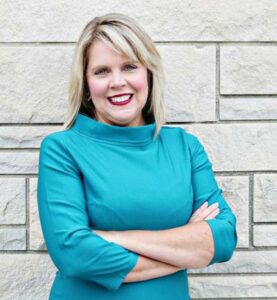Misogyny Still Rules on Ballot: Women Candidates Face Extra Hurdles
Originally published by Melissa Rinehart for The Journal Gazette
The grit it takes to run for elected office is something voters rarely understand unless they’ve experienced it personally. On top of the incredible time commitment and sheer endurance, women candidates also face gender bias that is unwarranted, unjust and often downright painful.
It’s time to expose the dark undercurrent of misogyny plaguing women candidates.
There’s ample research about men and women voters using gender cues to form beliefs about candidates and how that in turn impacts voter turnout. Research also shows that women politicians are seen as more liberal than men politicians, even within the same political party.
Women must be confident, but not too aggressive. Women must be experienced, but in the right ways — our male counterparts’ experience is rarely questioned.
I’m a credentialed anthropologist and proud of that. However, I’ve been told repeatedly by male allies not to use “Doctor” or “Ph.D.” in my campaign logos or materials. Their reasoning: It would turn off constituents because I wouldn’t be seen as relatable.
Would they advise a credentialed male candidate similarly?
A person’s appearance shouldn’t matter when running for office, but it unfortunately surfaced in my campaigns. My clothing and hairstyles have been scrutinized by male supporters, and other women candidates have shared that their weight was lambasted.
During a recent Republican presidential debate, Vivek Ramaswamy made a derogatory comment about Nikki Haley’s 3-inch heels. Although Haley eloquently corrected his assessment of her shoe height, it’s concerning that Ramaswamy felt compelled even to mention it.
How often do male candidates get questions or comments about their shoes, hairstyles or weight?
I recall a canvassing moment this past summer at a male’s house. A male volunteer and I knocked on his door. I introduced myself, and he proceeded to step outside and describe to us a sewer issue he has had for years. This conversation went for about 15 minutes, during which the male constituent never made eye contact with me but only with my male volunteer. My numerous attempts to redirect the voter’s attention were ignored.
Coincidingly, I’ve experienced the opposite from male constituents.
I’m single, and when I’ve run for office it’s seemingly an open invitation for male solicitations through social media and otherwise. When texting voters during my recent City Council race, a male constituent asked twice for my photo. I wonder whether he has asked a male candidate for a photo. And, more importantly, why does it matter?
Running for office requires being in the public eye and making huge time sacrifices — knocking on doors, participating in forums, going to fundraisers, etc. I was wholly committed to my recent campaign, yet a male ally referred to this commitment as being my “mistress.” Oddly, he had supported male candidates over the years; did he say the same to them?
An uninformed voter stated on social media that I should go back to television broadcasting. Maybe he thought I was Melissa Long. Thank you for the compliment, but, no, we are not the same person.
Another voter commented on a video I produced about our parks system, accusing me of being unaware of bigger issues facing our community. Had he read my biography, he’d have known that I lived in subsidized housing six years ago and have dedicated my career to those who struggle most in our community.
It’s been suggested to me several times to step aside and let male candidates ease into the office I sought. Have men been advised to do the same when a woman is running for the same office?
I was the first woman to run for Perry Township trustee, and male voters noted more than once, unsolicited, “It doesn’t bother me that you’re a woman.” If it didn’t bother them, why did they tell me that out of the blue?
I’ve also been advised to run for an office more suitable for women, and I’m still unclear what that means.
While I’m an empty nester, I was recently on the ballot with other women who have young children. Their sacrifices were tremendous, but they were willing to do that in order to make a difference in our community.
Why is a woman candidate’s commitment to her family questioned, but that of men with young children at home are not?
Unfortunately, the media bias for women candidates is omnipresent. If you look back at the contrasting editorials and features in various media for women in the recent municipal elections, you’ll see that we’re presented with softer language choices and our accomplishments are downplayed.
My employer was incorrectly stated in a piece about the Second District City Council race, and a constituent mentioned that I had misrepresented myself. In fact, that’s not what happened. The reporter got it wrong, and a retraction never occurred although requested.
Putting your name on the ballot takes tenacity, and to do it more than once, as I have, and to come up short, well, it’s a marathon of sheer determination.
Social media trolls come with the territory, and I don’t take it personally. But I do take it personally when my accomplishments and appearance are judged subordinately and differently to those of men.
How about we ditch the double standard and focus on a person’s ideas and leadership instead?
Women candidates work very hard to be measured on an equal playing field, yet they still face unbelievable scrutiny. It’s time for women candidates to be evaluated equally on their merits. And, for that to happen, both men and women need to acknowledge as well as reconcile their own gender biases when deciding whom to support politically.
